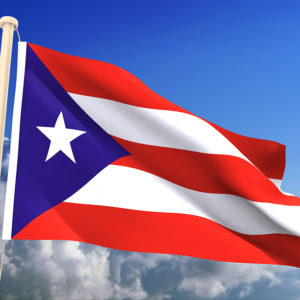On November 3, 2020, general elections will be held in Puerto Rico to elect the Puerto Rican government.
Every four years Puerto Ricans go to the polls to elect a government that does not govern them, since the U.S. government is the one that governs the Caribbean country as a colonial territory under the name of “Commonwealth.”
The Puerto Rican government, which favors the annexation of Puerto Rico to the United States, also approved the holding of a plebiscite that raises the following question: Should Puerto Rico be immediately admitted into the Union as a State? YES/NO.
Once again, this political status plebiscite is considered “local” since it is not binding on nor endorsed by the U.S. government. U.S. congressmen and Trump Department of Justice officials have already stated that the result of the plebiscite will not be recognized, making it a very expensive non-binding opinion poll.
Annexation, known in Puerto Rico as “statehood” or estadidad, has never been an absolute majority in any previous plebiscite. Their support in the number of votes even decreased to 23 percent in the last plebiscite in 2017.
Given this reality, it is likely that statehood will lose the upcoming “Statehood Yes/NO” plebiscite, thus confirming the decrease in electoral support for statehood in Puerto Rico itself.
Thus, why would the statehood party-controlled government insist on a Statehood Yes/NO plebiscite when it seems likely they will lose?
Well, given the widespread discontent and rejection of the current pro-statehood government as incompetent and corrupt, particularly after the 2019 civic revolt that galvanized the country and ousted corrupt statehooder governor Ricardo Rosselló, the plebiscite is really only intended to attract pro-statehood voters to the polls.
Americans need to understand that Puerto Rico is not merely an island of U.S. citizens, as statehooders claim.
Puerto Rico is a proud and distinct Latin American nation that has consistently resisted American colonial rule and defeated American assimilation policies for the last 122 years.
Puerto Rico, where less than 20 percent speak some level of English, even managed to defeat all the colonial English-Only laws and policies that have been imposed by American governors in attempts to replace Spanish and eradicate our culture. Of course, they failed.
Unfortunately, many Puerto Ricans have been seduced by the fantasy of “statehood” and its supposed bounties of welfare handouts and increased dependence on American taxpayer funds.
This situation has complicated the process of decolonization in Puerto Rico for the United States, where the idea of an unviable and undesired annexation (a state with its own national Olympic Team and Spanish language state government, schools and courts) has become an impediment to advance Puerto Rico’s decolonization.
There are many economists and nonpartisan institutions, like the Congress’ U.S. General Accountability Office (GAO), that have made it clear in a 2014 report how damaging the annexation of Puerto Rico would be to the U.S. economy, not to mention Puerto Rico’s economy as well.
According to the GAO report, statehood and its increased personal and corporate federal tax burdens of up to $11.6 billion alone would decimate the Puerto Rican economy, consolidate welfare, entrench dependency, and push American companies and thousands of Puerto Rican professionals to leave Puerto Rico, which would further worsen Puerto Rico’s economic and fiscal disaster.
If Puerto Rico became a state, it would be condemned forever to be the poorest state in the United States, below even Mississippi. Furthermore, annexation represents the condemnation of the Puerto Rican nation within the United States, with Puerto Ricans becoming a racial, ethnic, religious, and cultural minority in a country that is not their own. Annexation would destroy Puerto Rico’s right to exist as a Nation.
Puerto Rico’s pro-statehood leadership knows that statehood is not desired by the United States, but in this upcoming plebiscite on November 3rd, the majority of Puerto Ricans, organized in a massive anti-statehood coalition comprised of various political and civil groups under the banner of “Vota NO,” will finally show the United States and the world that Puerto Ricans do not want statehood.
This plebiscite will be the last nail on the statehood coffin and will send a message to Washington, D.C. that Puerto Ricans want to move forward with the United States down the path of sovereignty, not as a colony or state, but as an equal and democratic sovereign nation and U.S. ally in the international community.
Puerto Ricans, after this plebiscite, are hopeful that the United States will finally sit down with us and begin the process of decolonization.

